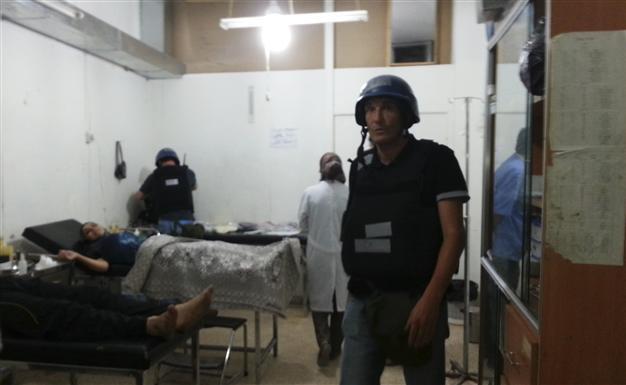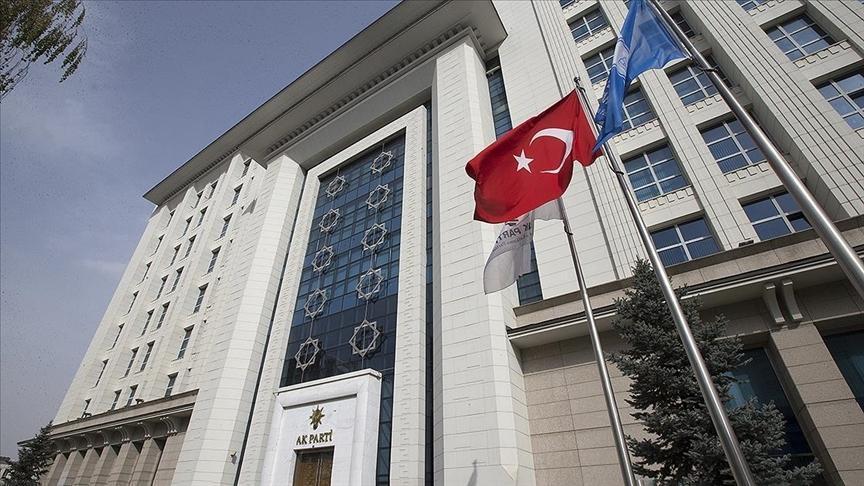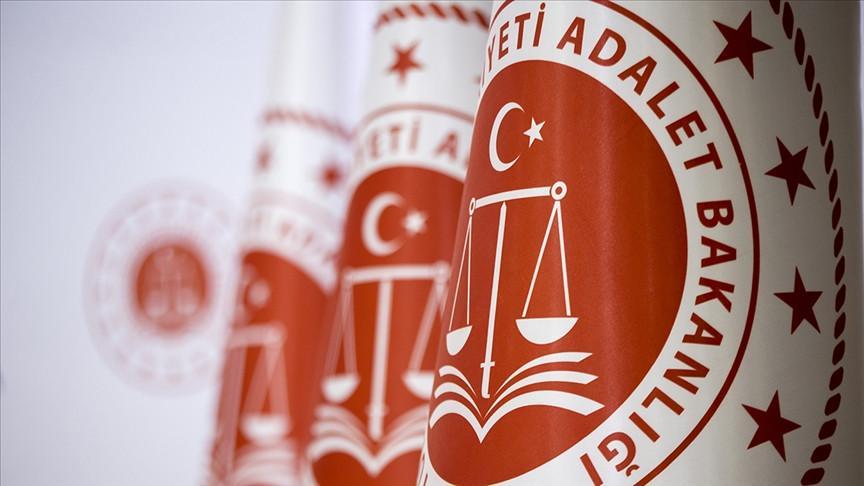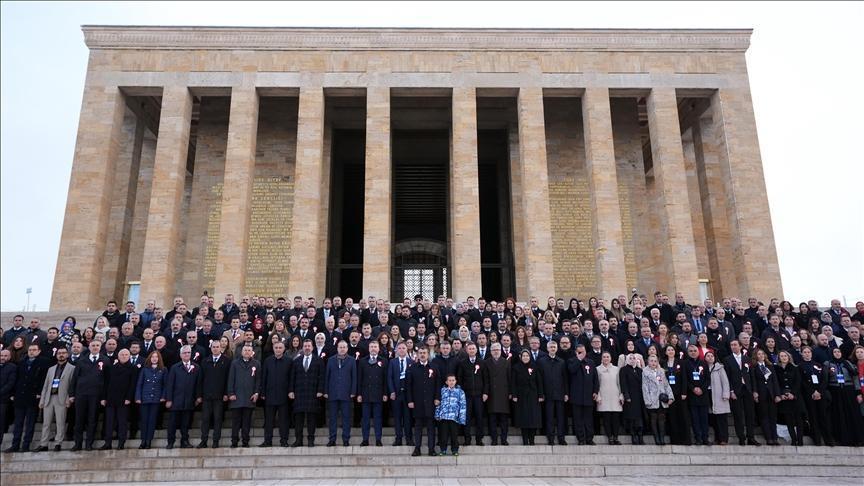UN experts speak to chemical attack survivors: Ban
UNITED NATIONS / PARIS / BEIRUT

U.N. chemical weapons experts visit wounded people affected by an apparent gas attack, at a hospital in the southwestern Damascus suburb of Mouadamiya, August 26, 2013. REUTERS/Abo Alnour Alhaji
UN experts spoke Aug.26 to victims of an alleged chemical weapons attack in Syria despite their convoy coming under sniper fire, UN leader Ban Ki-moon said.The United Nations has made "a strong complaint" to both the Syrian government and opposition rebels over the sniper attack, Ban said in a video statement from Seoul.
UN inspectors Monday visited a site near Syria's capital of a suspected chemical weapons attack to launch an investigation, meeting doctors and casualties, online videos showed and an activist said.
"The inspectors managed to enter the town of Moadamiyet al-Sham with civilians, and visited the Red Crescent centre where they met doctors," Abu Nadim, an activist in Damascus province, told AFP via Skype. Abu Nadim said the inspectors were wearing helmets and bullet-proof jackets and were accompanied by their own security detail, who carried walkie-talkies.
Nerve gas still traceable, experts say of Syria attack
Traces of nerve agent would remain in victims for weeks, easily detectable if UN inspectors can examine people poisoned in last week's suspected chemical weapons attack in Syria, experts have said.
Toxicology and weapons specialists said a gas like sarin or VX would still be traceable in hair and tissue from human corpses and animal carcasses, the blood of survivors, and the site where the shells carrying the supposed nerve agent exploded.
"We are still within the time zone where if there was a sarin attack, for example, we should be able to acquire blood samples that then can be analysed in a laboratory outside of Syria, and where we would know for a fact afterwards whether sarin was involved," said disarmament consultant Ralf Trapp, formerly a scientist at the Organisation for the Prohibition of Chemical Weapons.
"It depends on how much freedom they (the UN inspectors) have to do what they want to do and how good their access is," he told AFP.
US officials have expressed fears that evidence of last Wednesday's attack may already have been destroyed by continuing shelling of the area.
Alastair Hay, a toxicology professor at Leeds University in England and a former chemical weapons inspector, said the symptoms "point to a potent chemical warfare nerve agent like sarin", whose victims could carry traces in their blood for up to six weeks.
"In the environment you would have even more latitude," he said. "In an investigation I did in the Kurdish area of Iraq we found mustard gas and their breakdown products in soil taken from where the munition had exploded, and this was four years after they had detonated." Sarin is an odourless, paralysing gas developed by Nazi scientists and used by Iraqi dictator Saddam Hussein's regime to kill thousands of Kurds in 1988.
It kills by asphyxiation, and is widely believed to form part of Syria's military arsenal.
To test for sarin or a similar nerve agent, the UN inspectors should be allowed to interview, examine and take samples from survivors, given access to their medical and laboratory files as well as the doctors who treated them, said the experts.
French toxicology and forensic expert Pascal Kintz said there should be no technical hurdle to obtaining proof of nerve gas poisoning.
The inspectors should also be allowed to comb the site of the explosion -- interview witnesses, take samples from the soil and from carcasses on the scene, as well as from the munition itself.
Snipers in Syria shoot at UN chemical inspectors
Snipers shot at United Nations experts Aug.26 forcing them to pull back from an attempt to investigate a chemical weapons attack near Damascus, a spokesman said.
No injuries were reported when the first vehicle in a UN convoy was hit as it headed for Ghouta, east of the Syrian capital, but the team had to head back toward their base, said UN spokesman Martin Nesirky.
The UN spokesman gave no other details on the venue of the sniper attack or from where the shooting came from.
But Nesirky "stressed again that all sides need to extend their cooperation so that the team can safely carry out their important work."
The Syrian regime has accused rebels of firing at UN inspectors as they were heading to the site of alleged chemical weapons attacks near Damascus to begin their investigations.
"Members of the United Nations team... came under fire from armed terrorist groups as they entered the Moadamiyet al-Sham area" southwest of Damascus, state television reported.
Syria's opposition accused pro-regime forces of opening fire at UN weapons inspectors Monday on their way to a suspected chemical weapons site outside Damascus in a bid to hinder their investigation.
At least two mortar bombs hit Damascus near UN team's hotel
Earlier in the day, at least two mortar bombs struck a wealthy district of central Damascus, in the same area where a team of United Nations inspectors are staying. Residents said one of the mortars fell near the Four Seasons hotel, where the U.N. experts are staying. Syrian state media said the mortar bombs were locally made and fired by “terrorists,” its term for rebels fighting President Bashar al-Assad’s rule.
















